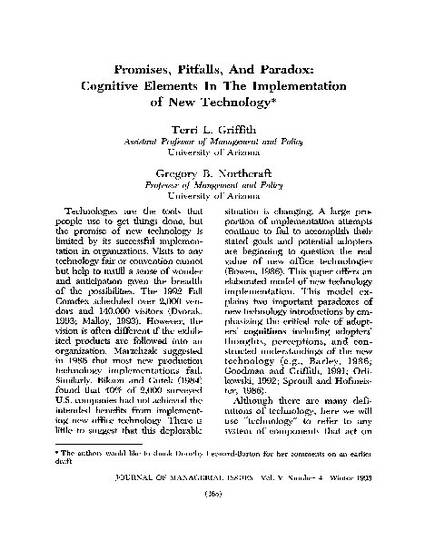
Offers a model of new technology implementation (NTI) that elaborates the role of cognitions, specifically user and implementer frames in NTI. The model reveals the paradox of value (PV) and the paradox of experience (PE). The PV occurs when the divergence between user frames (the balanced information that users need) and implementer frames (the unbalanced information that implementers provide) creates negative surprises for users when they experience a new technology. The PE is that these negative surprises need not be costly and may be key components of successful implementation. The key proposition is that the pitfall of unbalanced implementation frames and the PV and PE may be turned into promises of successful implementation. Managers must prepare and accept the costs of the users learning to become experts. Managers wanting to apply this philosophy to their NTI need only to challenge their users with the technology.

Copyright © 1993 Pittsburg State University. Reprinted with permission.